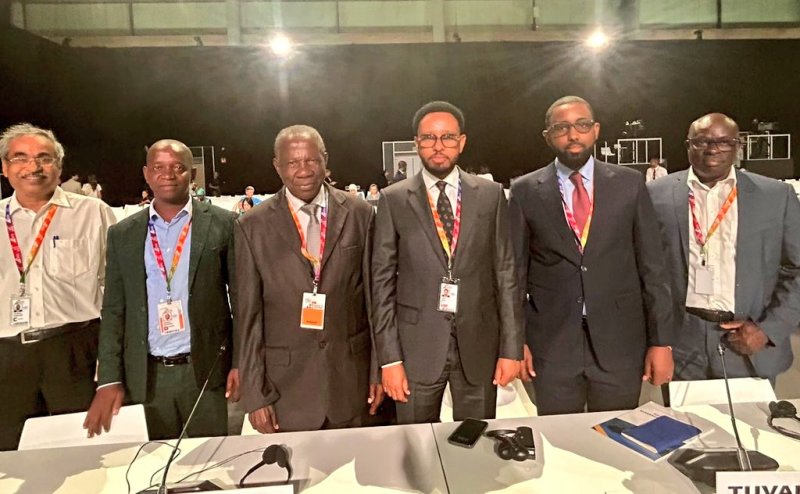National Financial Inclusion Strategy II to empower marginalized groups

Finance Minister Matia Kasaija has launched the second national financial inclusion strategy (NFIS II) 2023-2028 at Four Points by Sheraton, Kampala.
This follows the expiry of 1st strategy (NFIS I) 2017-2022. The vision of the second strategy is; “universal access and usage of a broad range of quality and affordable formal financial products and services delivered in a responsible and sustainable manner.”
Launching the Strategy Kasaija said financial inclusion is vital for the national development agenda. He said financial inclusion helps in growing the economy, reducing poverty, creating jobs by supporting entrepreneurship and business expansion as well as promoting gender equality and promoting rural development.
“We need to reduce access barriers to formal financial sectors. We need to deepen usage of affordable and quality financial products. We must work to strengthen financial consumer protection and capabilities,” said the Finance Minister.
Acting Director Economic Affairs, Moses Kaggwa who represented PSST Ramathan Goobi said compared to 2017, more Ugandans now have a financial account more have access to credit when they need it and more are able to save.
“A big success has been the rapid increase in financial access points from 548 per 100,000 adults in 2017 to 2,386 per 100,000 in 2022. Active banking agents have increased from 133 in 2017 to 25,635 in June 2023.
Regarding Parish Development Model (PDM), Kaggwa said UGX 1.13 trillion had been disbursed by mid- November, 2023 to 10,585 SACCOs. UGX 974.8 billion has so far been loaned to 965,243 beneficiaries.
Speaking at the lunch, Bank of Uganda Deputy Governor Micheal Atingi noted that the success of NFIS II hinges on the power of partnership.
“We are grateful for the unwavering support of the Ministry of Finance Planning and Economic Development; development partners, especially Financial Sector Deepening Uganda and Alliance for Financial Inclusion; the financial sector, and, most importantly, the Ugandan people,” he said.
According to Atingi, the National Financial Inclusion Strategy II (NFIS II) aligns with the BoU’s strategic plan (2022-2027), with initiatives to foster financial inclusion through digital financial services, effective regulatory frameworks, appropriate infrastructure, partnerships, innovation, and consumer protection. It also emphasises the soundness and resilience of the financial system.
“At the heart of NFIS II lies a deep-rooted commitment to empowering underserved segments, including women, smallholder farmers, forcibly displaced persons, youth, MSMEs, rural dwellers, and people with disabilities. We recognise their unique challenges and are committed to tailoring financial solutions that address their specific needs,” he said.
He added that much has been achieved through the first NFS, but their work is far from finished.
“Too many Ugandans still lack access to essential financial tools. Usage, not just access, must be our guiding star in the future. With NFIS II, that is exactly what we aim to achieve over the next five years”







